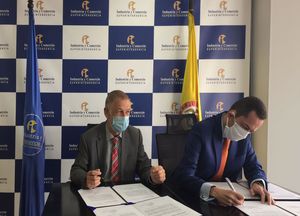As a result of the cooperation between the Institute's SIPLA initiative and the Colombian Superintendencia de Industria y Comercio (Superintendence of Industry and Commerce), both partners expect that research results from collaboratively identified projects will help to define governmental measures in a targeted manner and to implement them more efficiently.
A similar partnership has already been established with Argentina, and further agreements of this kind in Latin American countries are to follow in the future.
About SIPLA
Smart IP for Latin America is a research initiative of the Max Planck Institute for Innovation and Competition. It provides a neutral forum for academic and legal policy discourse on intellectual property and competition law in Latin America. It aims to inform and advise academia, policymakers, the business sector and the public on the basis of impartial and evidence-based fundamental research. The goal is to support the realization of Latin America’s social, cultural, and economic potential.
Smart IP for Latin America was launched in 2018 at an inaugural conference in Santiago de Chile, attended by representatives from academia, government, industry, and legal practice. An office at the University of Buenos Aires – the “Observatory” – has been coordinating research activities and events on site in close cooperation with the SIPLA team at the Institute in Munich since 2019. The team is supported by a top-class advisory board with scientific representatives from all over Latin America.

